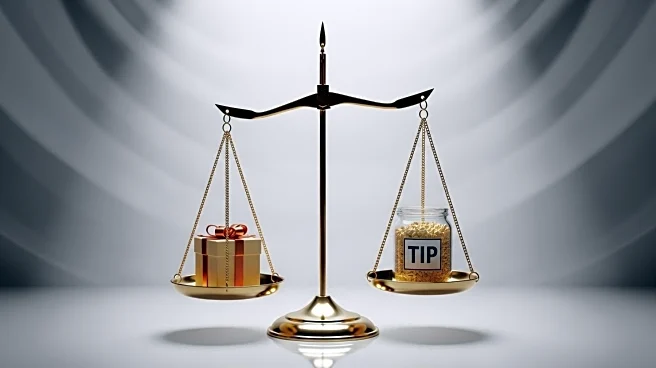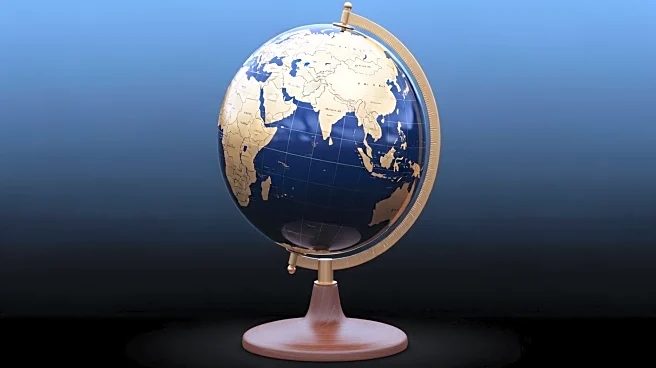What's Happening?
A recent study conducted by Empower highlights the effects of inflation and tariffs on consumer spending habits, particularly in the realm of gifts and tips. The study reveals that Americans are experiencing 'gift fatigue' and are increasingly adopting 'no gift' policies due to rising prices. The 'going rate' for various gifts has been quantified, with birthday gifts averaging $56 for adults and $83 for children, while wedding gifts average $85. Additionally, tipping habits have been affected, with median tips for takeout dining at 16%, food delivery at 11%, beauty services at 14%, and rideshare services at 10%. The study also notes generational differences in spending, with 55% of respondents believing their generation spends more than others. Furthermore, 33% of respondents are opting for a 'no gifts' policy this year.
Why It's Important?
The findings from Empower's study underscore the broader economic impact of inflation on consumer behavior. As prices rise, individuals are adjusting their spending habits, which could have significant implications for retail and service industries reliant on gift-giving and tipping. The shift towards smaller, more thoughtful gifts and the adoption of 'no gift' policies may lead to decreased revenue for businesses that depend on holiday and special occasion spending. Additionally, the study highlights the role of economic factors in shaping social norms around generosity and gift-giving, potentially leading to long-term changes in consumer expectations and behaviors.
What's Next?
As consumers continue to grapple with inflation, businesses may need to adapt by offering more affordable options or emphasizing the value of experiences over material gifts. Retailers and service providers might also consider strategies to encourage spending, such as promotions or discounts. The ongoing economic pressures could prompt further studies into consumer behavior, providing insights into how spending patterns evolve in response to financial challenges. Additionally, policymakers may need to address the underlying causes of inflation to alleviate its impact on consumer spending.
Beyond the Headlines
The study's findings suggest deeper cultural shifts in how Americans perceive gift-giving and generosity. As economic pressures mount, the traditional emphasis on material gifts may give way to valuing time and presence, reflecting a broader societal trend towards minimalism and sustainability. This shift could influence marketing strategies and consumer expectations, prompting businesses to innovate in how they engage with customers. Furthermore, the study highlights the potential for economic indicators, such as gift spending, to provide insights into broader economic health, offering alternative metrics for assessing consumer confidence.










